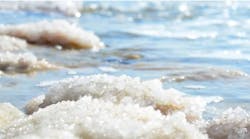EPA announces $4.6M in grants for coastal watersheds in southeast New England
The U.S. Environmental Protection Agency (EPA) announced $4,637,000 for eight grants focused on coastal watershed efforts in southeast Rhode Island and Massachusetts. The projects selected for grant funding are intended to identify, test, and promote effective new regional approaches in critical areas such as water monitoring, watershed planning, nutrient and/or septic management, and resilience to climate change.
These projects are funded through EPA’s Southeast New England Program (SNEP). Since its launch in 2014, SNEP’s mission has been to seek and adopt transformative environmental management. Grantees have developed projects that share innovative solutions and foster collaborative problem-solving and new approaches. One of the goals of the Southern New England Program is to make connections across projects to ensure that restoration strategies are comprehensive and sustainable, that they are informed by input from key stakeholders, and that they are connected to the economies and enhance the ecosystem services that support coastal watershed communities. The program’s geographic area encompasses the coastal watersheds from Westerly, Rhode Island to Chatham, Massachusetts, and includes Narragansett Bay and all other Rhode Island coastal waters, Buzzards Bay, and southern Cape Cod as well as the islands of Block Island, Martha’s Vineyard, and Nantucket.
EPA’s 2016 Southeast New England Program Grants:
- Aquidneck Island Planning Proprietary Passive Nitrogen Removing Septic Systems
- Association to Preserve Cape Cod: $472,574 for Assessment of Non-Proprietary Passive Nitrogen Removing Septic Systems
- Massachusetts Audubon Society: $560,636 for Integrating Ecosystem Services Functions and Values into Land-Use Decision Making in the Narragansett Bay Watershed
- Town of Charlestown, RI: $674,201 for Charlestown Coastal Watershed Protection and Restoration Program
- The Ecosystem, Center, Marine Biological Laboratory: $402,461 for Assessing Climate Effects on Watershed and Stormwater Nitrogen Loading and Vulnerabilities in Meeting TMDLs in Buzzards Bay and Cape Cod
- Wampanoag Tribe of Aquinnah: $275,790 for Tribal Common Lands Ecological Enhancements and Resiliency Project
- The University of Massachusetts-Dartmouth– School for Marine Science and Technology: $525,967 for Quantifying Potential for Oyster Aquaculture and Impacts on Estuarine Nitrogen-Related Water Quality
EPA awards $4.8 million to six universities to research water quality benefits
The EPA announced funding to six universities to work with local communities to better understand the economic value of water quality. Each grant will help measure the costs and benefits of improving water quality, an important step toward protecting the environment and human health.
Chemical and microbial contaminants continue to reduce the quality of our water – and often at a rate that outpaces water quality improvements from regulatory actions. These research grants will help communities and experts conduct benefit-cost analyses for actions that protect our waterways as well as provide a critical link between water quality science and the monetary value of the services that healthy waterways provide, including recreational uses.
The grants are being awarded to the following institutions:
- Clark University, Worcester, Mass. will estimate water quality benefits throughout river systems in the Northeast.
- Dartmouth College, Hanover, N.H. will create a framework for linking the health of small streams to water quality indicators and ecosystem services that people recognize and fundamentally value.
- University of Connecticut, Storrs, Conn., will quantify the value of changes in water quality, both in terms of the value to the environment and their value to the economy.
- North Carolina State University at Raleigh, Raleigh, N.C., will develop and demonstrate methods for valuing the benefits of water quality in wadeable streams in Southeast watersheds where the surrounding area is undergoing increased urban development.
- Michigan State University, East Lansing, Mich. will estimate value caused by changes in nutrients to the freshwater systems in Michigan.
- Iowa State University, Ames, Iowa will quantify the value water quality improvements in Midwestern ecosystems.


